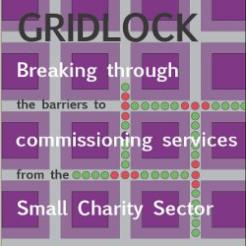Small charities lack the confidence to use their rights under the Localism Act, and face the ultimate threat of closure under the current commissioning process, says the FSI following research it publishes today.
In its Gridlock report, which surveyed 239 small charities with an income under £1.5m on barriers to procurement, capacity-building charity the FSI discovered that just 25 per cent felt confident to compete in new areas of public procurement, while 31 per cent felt either fairly or very unconfident.
The ‘community right to challenge’ clause within the Localism Act, which was introduced in 2011, gives organisations the right to make a bid to take over services from the local authority. In the FSI’s research, 79 per cent said that knowledge of the Act would be very or fairly important in deciding whether or not to make a bid, but an overwhelming majority of 83 per cent advised that their organisational finances and capacity would be.
The combination of low confidence and perceptions of financial barriers are “concerning”, says the FSI, which advises that its results are an indication that structural issues are at the core of whether small charities will use their powers under the Act. The FSI advise that:
“On a local level it is therefore essential that small charities are not excluded from the opportunity to deliver services. Having an understanding of the available opportunities is key, but services risk excluding small charities if they do not have a chance to compete due to the inability to secure finance.”
The problems are not resolved by entering into consortia, the research indicates, as 30 per cent of the charities which had bid for services in consortia (less than 50 respondents) said that they were dissatisfied with their experience of it. Asked what would improve their experience of bidding as a consortium over 80 per cent said that an open dialogue with commissioners and an understanding of what the commissioners were looking for would be very or fairly important.
Speaking to the pressing need to improve commissioning for smaller organisations, founding CEO of the FSI, Pauline Broomhead said: “Small charities are the backbone of communities around the country: they provide frontline support to individuals with complex needs, and are working to fill in the gaps of service provision where the public sector does not. The drive to reduce public spending cannot force these organisations to close their doors. Time is of the essence: with further reports suggesting that the demand for services is rising alongside reduced budgets, the current situation is not sustainable.”
The FSI is undertaking a number of initiatives this Small Charity Week (17 - 22 June) to highlight the challenges faced by small charities, which comprise 97 per cent of the charity sector, taking 'small' as those with an income less than £1.5m.









